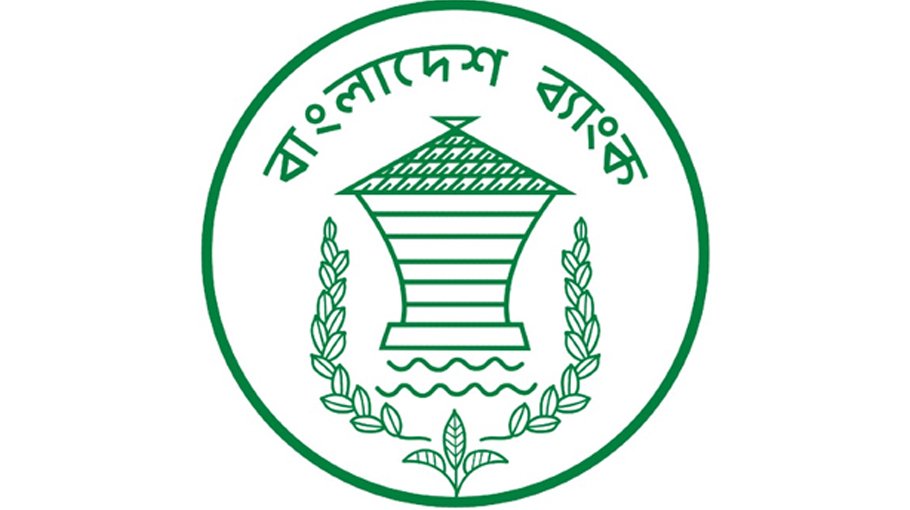BB steps to keep forex market stable

Bangladesh Bank sold a record about $4.50 billion directly to the commercial banks from the foreign exchange reserves to prevent the rise in the value of dollar against Taka.
Experts said the demand for US dollars has increased in the inter-bank forex market as the country's import demand picked up recently and the remittance inflow has declined as well.
They said the central bank usually sells US dollars directly to commercial banks to meet higher demand for the greenback. It is a sign of the economic stability of the country, they added.
In the interbank forex market, per dollar sold at Tk 86.45, but the banks are selling cash dollars at Tk 93.
On Thursday, the state-owned Sonali and Agrani Bank sold Tk 92 per dollar while Janata Bank sold a dollar at Tk 91.80.
On the other hand, Private Eastern Bank has sold at Tk 93. And it sold at Tk 93 to Tk 95 in the open market.
As such, Sonali and Agrani Bank are selling cash dollars at a price of Tk 5.60 more than the interbank rate. Other banks are selling Tk 5 to Tk 5.50 more. But this difference should not be more than one and a half Taka.
The central bank has no direct control in the open market. However, if the banks sell dollars at higher prices, Bangladesh Bank intervenes because the banks buy dollars from the central bank at the interbank rate and sell those dollars.
As seen earlier, Bangladesh Bank would have set a limit on the difference between the dollar sold by the banks and the interbank rate, it used to be between one and two Taka.
However, in the last few months, the banks have been selling dollars at a much higher price than the interbank rate, but so far Bangladesh Bank has not intervened.
That is why, as the days go on, the banks are increasing the value of the US currency dollar as they wish while the value of local currency is decreasing. In this situation, the cost of imports is increasing while commodity prices are rising. However, exporters and expatriates are benefiting.
Even selling dollars to the commercial banks is not going to control the price.
Due to the Corona epidemic, imports fell sharply during the last fiscal year 2020-21, but remittances and export earnings have jumped.
That is why the supply of dollars in the market has increased. In that scenario, the central bank bought a record about $8 billion in the last fiscal year to keep the dollar afloat.
In its continuation, in the first month of July of the current 2021-22 fiscal year, 205 million dollars were bought.
However, since August 20, the picture is reversed. As the Corona situation began to normalize, imports began to increase rapidly.
Although export earnings increased, remittance inflow continued to decline. Besides, foreign exchange reserves also decreased.
Meanwhile, since August 2021, the demand for dollars in the market has increased. Besides, the dollar also appreciated against the local currency. As part of its move, Bangladesh Bank started selling dollars from August to keep the market stable, which is still continuing.
According to the central bank, on August 5 last year, the dollar was sold at Tk 74.80 per dollar in the interbank market.
The dollar has been 'stable' in this same place for more than a year. Since then, the value of the United States currency has continued to rise.
It is calculated that in the last 9 months, the value of the dollar against Bangladeshi currency has increased by about 1.92 percent.
Md Serajul Islam, Bangladesh Bank executive director and spokesman, said, “Production activities are going on in the country during corona epidemic. The pressure to import industrial raw materials and capital equipment has increased.”
Besides, various previous import bills have to be paid, he said adding that, the demand for the dollar has increased and the market price has also increased. This is the normal rule, he mentioned.
“The central bank's job is to keep the money market stable, he said, adding that the dollar was bought when there was a supply of foreign exchange in the market. Now that supply has dwindled, the central bank is selling dollars in line with market demand,” Islam said.
Ahsan H Mansur, economist and chairperson of Brac Bank, said, “The dollar market is really volatile. Bangladesh Bank is not able to keep the market normal even after selling a lot of dollars from the reserves. I don't think the market can be restored to normalcy by intervening in this way.”
The import has sharply risen after the Corona situation has returned to normal, he said, adding that remittance inflow has reduced in recent times, which also put pressure on the forex market.
Although the export earnings are growing, it cannot meet demand on the forex market, he said.
“We have to tighten our waist belt now. In any case, imports must be reduced. Apart from this, there is no other way open now. And if that doesn't happen, it will keep more pressure on reserves. Even a few months ago, reserves exceeded 48 billion. Now it has come down to $44 billion,” he mentioned
However, in the first eight months (July-February) of the current 2021-22 fiscal year, goods worth $54.38 billion were imported.
This figure is 46.70 percent more than that in the same period last year.
According to the central bank data, the remittance inflow reduced by 17.74 percent to stand at $13.29 billion in July-March in this fiscal over the same period of previous fiscal.
Meanwhile, the country's export earnings witnessed a rapid growth and increased to $38.60 billion during July-March period in the current fiscal against that in the same period of previous fiscal.



